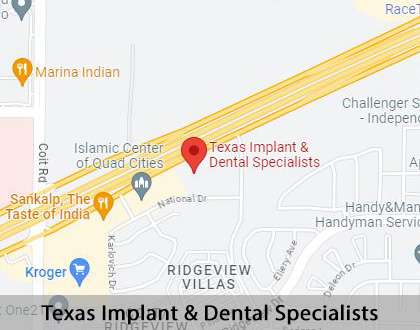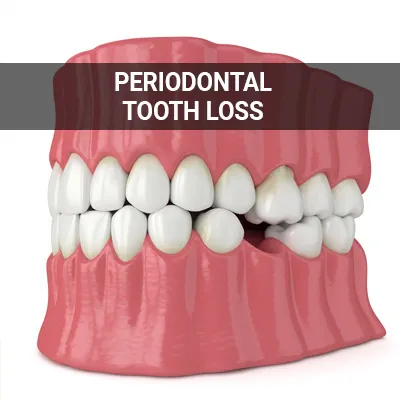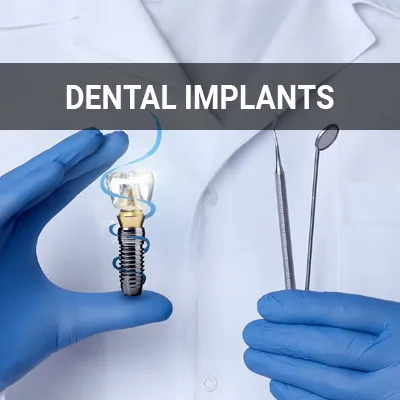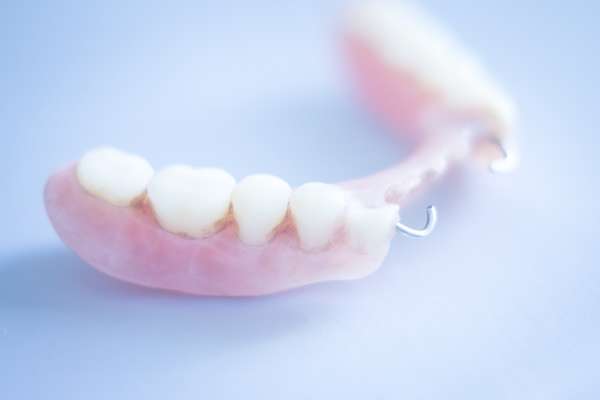Oral Surgery Plano, TX
Oral surgery can help address the underlying cause of dental issues. This specialty area of dentistry can diagnose and surgically treat various abnormalities of the oral cavity. Oral surgery is an indispensable part of dentistry.
Oral surgery is available at Texas Implant & Dental Specialists in Plano and the surrounding area. You should never hesitate to receive the treatment you need. Call us today at (972) 535-6555 to schedule an appointment or learn more about our services.
Understanding Oral Surgery
According to the American Dental Association, oral and maxillofacial surgery encapsulates diagnosing and surgically treating the various "diseases, injuries, and defects involving both the functional and esthetic aspects of the hard and soft tissues of the oral and maxillofacial region." "Oral" refers to the mouth, while "maxillofacial" refers to the jaw and face.
Oral and maxillofacial surgery can address both the aesthetic and functional areas of these regions. As such, there are several types of oral and maxillofacial surgeries. Most people need to undergo wisdom teeth removal, one of the most common oral surgeries, at some point in their lives.
“Oral and maxillofacial surgery can address both the aesthetic and functional areas of these regions.”
Types of Oral Surgeries
There are numerous kinds of oral surgeries. According to Healthgrades, common oral surgeries include:
- Apicoectomy. This procedure is performed when a root canal treatment cannot be completed or is insufficient to treat the patient’s issue. In an apicoectomy, the practitioner removes the tip of the root and fills the empty space with inert material.
- Cleft Palate or Lip Repair. Cleft palate or lip repair can be performed by either plastic surgeons or oral and maxillofacial surgeons with specialized training. A cleft palate is an opening in the roof of the mouth, while a cleft lip is a turned-up front lip. These congenital abnormalities can be repaired when a patient reaches around one year old.
- Dental Implant Placement. Patients who have lost one or multiple teeth often opt to replace their teeth with dental implants. These tooth replacements look and function like natural teeth. The procedure consists of the dentist implanting “a post through the gum into the jawbone for each replacement tooth.”
- Facial Reconstruction. Facial trauma can lead to broken facial bones or knocked-out teeth. Oral and maxillofacial surgeons can perform certain reconstructive procedures to restore both the appearance and the function of the face, jaw, and oral cavity after an accident. Facial reconstruction may entail multiple surgeries over the course of a few months or years.
- Procedures to Relieve Obstructive Sleep Apnea (OSA). Patients with OSA experience disrupted breathing during sleep, sometimes leading to dangerously low oxygen levels. Some patients with OSA may benefit from surgery to alter the structures of their palate, jaw, or upper airway.
- Tooth Extraction. Millions of people need to undergo tooth extraction every year, often due to wear-and-tear or decay. A tooth extraction procedure is typically painless. The dentist will administer a numbing agent, extract the tooth, clean up the socket, and, if necessary, place a suture into the wound to assist in healing.
- Wisdom Teeth Removal. Wisdom teeth are additional molars that do not come in until late adolescence. If they emerge improperly, crowd against nearby teeth, or fail to fully emerge, then they must be removed. The procedure generally requires light sedation but has a quick recovery time that involves little discomfort.
“What are some common types of oral surgeries?”
Conditions Requiring Oral Surgery
Oral surgery can help correct several different issues, including cleft lip and cleft palate. When some or all of the mouth and nasal cavity fail to grow properly together during fetal development, an individual may develop a cleft lip and cleft palate. This results in a gap in the lip or a split in the roof of the mouth or both. Oral surgery can be a part of a larger treatment plan to correct this.
Facial Infections often require oral surgery. Symptoms of a facial infection include pain and swelling in the face, neck, or jaws. If left untreated, this condition can quickly become life-threatening. Successful diagnosis and treatment may be possible through working with an oral surgeon. This may involve making an incision into the infected area to drain it, along with any necessary tooth extractions.
Trauma to the face may result in injury to the jaw and facial bones. Oral surgery can help correct these irregularities and restore the patient's face to its original appearance. Lesions and abnormal growths or tissues in or around the mouth area may require further examination after being visually identified. Oral surgeons can take a small sample of these cells and send them out for laboratory testing. Additionally, some lesions may be removed surgically.
Non-surgical methods, such as positive pressure air machines and dental splint machines, are usually the first line of defense against obstructive snoring and sleep apnea. Oral surgery may be an option when these methods are not enough. Typically, this involves removing the soft tissues of the oropharynx or the lower jaw.
"Oral surgery can help correct several different issues, including cleft lip and cleft palate."
Check out what others are saying about our dental services on Yelp: Oral Surgery in Plano, TX
Advantages of Oral Surgery
Oral surgery has the potential to repair whatever problem a patient may have with their oral health. For example, it may help prevent further damage to a tooth or restore a person's smile after tooth loss. Also, patients who undergo oral surgery for dental implant placement will have a long-lasting tooth replacement. Not only does this reduce the likelihood of running into other dental problems further along the line, but also it helps improve one's overall health. Oral health is so important, in fact, that the Mayo Clinic calls it "a window to your overall health."
"Oral surgery has the potential to repair whatever problem a patient may have with their oral health."
Questions Answered on This Page
Q. What are some common types of oral surgeries?
Q. What conditions can be treated by oral surgery?
Q. What are some of the benefits of oral surgery?
People Also Ask
Q. How big is the need for gum surgery?
Q. What are the different types of surgical periodontics?
Q. What are the most common signs and symptoms of periodontal tooth loss?
Q. What is the dental implant process like?
Q. What are the benefits of dental crowns and dental implants?
Oral Surgery Treatment and Recovery
Each surgery is different, and each dentist will provide each patient with detailed instructions on how to prepare for and recover from their procedure. In general, however, patients can expect to undergo certain pre-operative preparations. According to VeryWell Health, these preparations are often directed by the type of anesthesia the patient will undergo. After the patient has been fully prepped and the anesthesia has been administered, the procedure can begin. It may be an open surgery, endoscopic surgery, or minimally invasive open surgery.
Recovery times also vary according to types of surgery. For example, wisdom teeth extraction is a relatively minor procedure that requires little downtime, while orthognathic surgery may take months to fully recover from. One's general health before surgery, how well they care for their surgical wound, and whether they smoke will also factor into their recovery time. It is vitally important for patients to follow the recommended diet and remember to take in enough nutrients.
"Each surgery is different, and each dentist will provide each patient with detailed instructions on how to prepare for and recover from their procedure."
Frequently Asked Questions
Q. Is dental implant placement painful?
A. It depends on the patient. However, most patients report that it is far less uncomfortable than expected. Many liken the sensation to having a tooth extracted. Most patients can manage any pain after the procedure with over-the-counter painkillers.
Q. Is it always a good idea to get my wisdom teeth removed?
A. Most people will find that wisdom teeth will pose a problem to their oral health at one point in their lives. However, it may be a good idea to get them removed even if they are not causing any clear problems, as they become more likely to cause damage the longer they are in your mouth. In addition, they become more difficult to remove as time goes by.
Q. Does oral surgery hurt?
A. Oral surgery should not be painful. Our team will do everything in our power to make your experience as comfortable as possible. This may include administering anesthesia to lessen any discomfort.
Q. Will I be able to drive myself home after my oral surgery?
A. It depends. If you have received sedatives, you should have someone drive you home and avoid driving for the rest of the day. However, if you have received local anesthesia, it will be fine for you to drive home after your procedure.
Q. Will I need sutures for my oral surgery?
A. It depends on your procedure. Sutures may be self-dissolving and resorb within a few days. If they are not, we will ask you to come into the office for a return visit so we can remove the sutures.
Start Feeling Better - Visit Us Today
By visiting us as soon as possible, our team can help get you the professional treatment you need. Instead of waiting around and allowing the symptoms to get worse, we can provide you with treatment options.
Definitions
Call Us Today
Oral surgery can treat your oral health problems at the root. We at Texas Implant & Dental Specialists can help. Call us today at 972-535-6555 to schedule an appointment or learn more about our services.
Helpful Related Links
- American Academy of Periodontology (AAP). American Academy of Periodontology (AAP). 2023
- Center for Disease Control and Prevention (CDC), Periodontal Disease Page. Center for Disease Control and Prevention (CDC), Periodontal Disease Page. 2023
- WebMD, What Is a Periodontist?. WebMD, What Is a Periodontist?. 2023
About our business and website security
- Texas Implant & Dental Specialists was established in 2007.
- We accept the following payment methods: American Express, Cash, Check, Discover, MasterCard, and Visa
- We serve patients from the following counties: Collin County, Denton County and Dallas County
- We serve patients from the following cities: Plano, Frisco, Allen, McKinney, Garland, Richardson, Prosper, Wylie, Murphy, and Dallas
- Norton Safe Web. View Details
- Trend Micro Site Safety Center. View Details
Back to top of Oral Surgery










